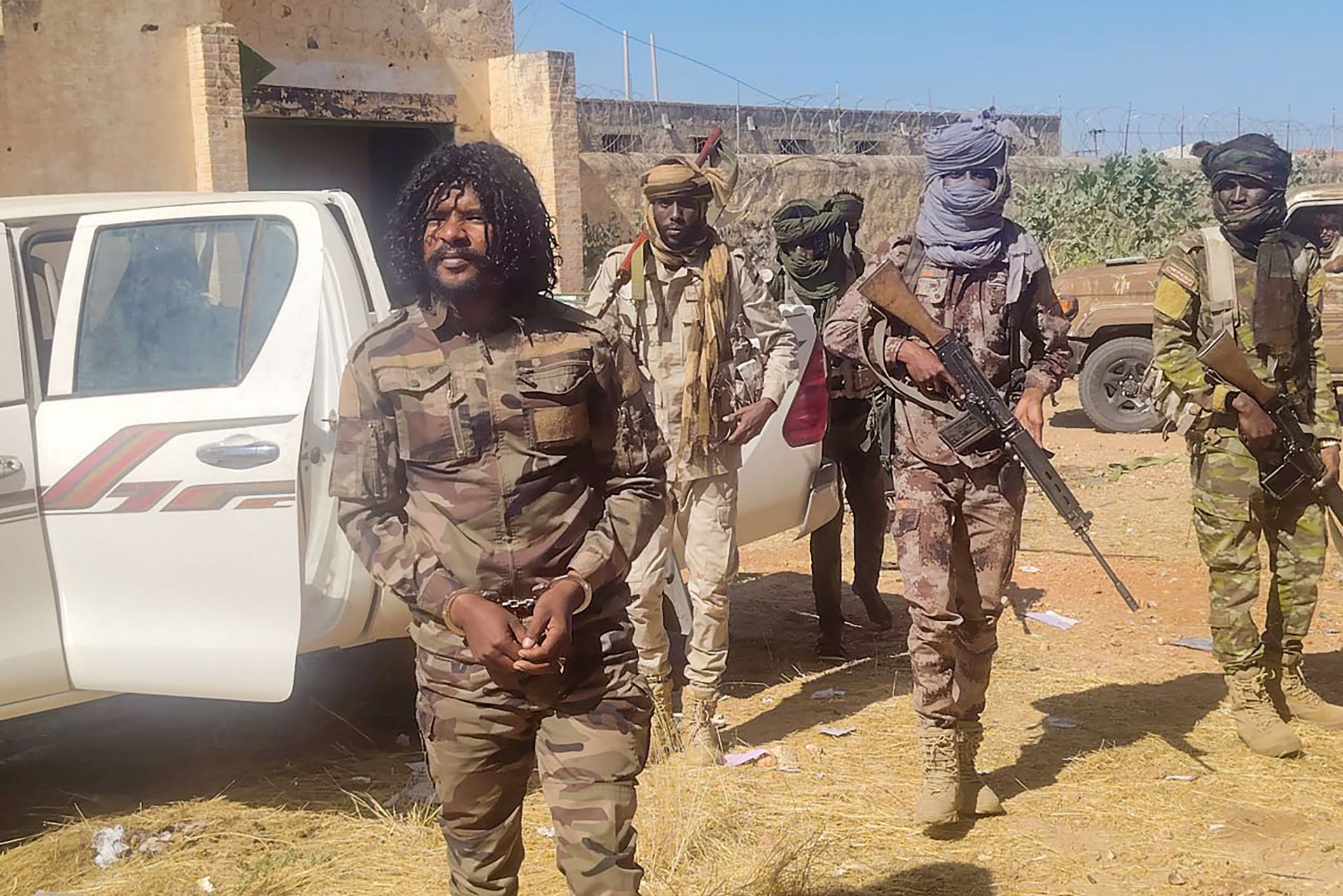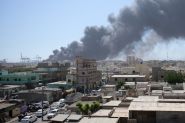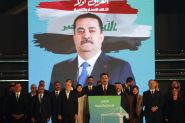- Home
- Middle East
- Imagery Shows Killings Persist in Sudan as German FM Decries 'Apocalyptic' Crisis

This handout picture released by the Sudanese Rapid Support Forces (RSF) on October 30, 2025, shows RSF members reportedly detaining a fighter known as Abu Lulu (L) in El-Fasher, in war-torn Sudan’s western Darfur region. ©Rapid Support Forces (RSF) / AFP
Satellite imagery suggests mass killings are likely continuing in and around Sudan's El-Fasher, Yale researchers said, as Germany's top diplomat on Saturday described the situation there as "apocalyptic."
At war with the regular army since April 2023, the Rapid Support Forces seized El-Fasher on Sunday, pushing the military out of its last stronghold in the western Darfur region after a grinding 18-month siege.
Since the city's fall, reports have emerged of summary executions, sexual violence, attacks on aid workers, looting, and abductions, while communications remain largely cut off.
Survivors from El-Fasher who reached the nearby town of Tawila have told AFP of mass killings, children shot before their parents, and civilians beaten and robbed as they fled.
Hayat, a mother of five who fled the city, said that "young men travelling with us were stopped" along the way by paramilitaries, and "we don't know what happened to them."
Yale University's Humanitarian Research Lab said fresh satellite images from Friday showed "no large-scale movement," giving them reason to believe much of the population may be "dead, captured, or in hiding."
The lab identified at least 31 clusters of objects consistent with human bodies between Monday and Friday, across neighborhoods, university grounds, and military sites.
"Indicators that mass killing is continuing are clearly visible," the lab said.
The UN says more than 65,000 people have fled El-Fasher, but tens of thousands remain trapped. Around 260,000 people were in the city before the RSF's final assault.
At a conference in Bahrain on Saturday, German Foreign Minister Johann Wadephul said Sudan was "absolutely an apocalyptic situation, the greatest humanitarian crisis of the world."
He added that the RSF had "pledged to protect civilians, and they will be held accountable for these actions."
'Truly Horrifying'
Speaking at the same event, British Foreign Minister Yvette Cooper also described the reported abuses as "truly horrifying."
"Atrocities, mass executions, starvation, and the devastating use of rape as a weapon of war, with women and children bearing the brunt of the largest humanitarian crisis in the 21st century," she said.
The RSF said Thursday that it had arrested several fighters accused of abuses during the capture of El-Fasher, and the paramilitary group's chief, Mohamed Hamdan Daglo, pledged accountability for "anyone who has made a mistake."
However, UN humanitarian chief Tom Fletcher questioned the RSF's commitment to investigate these atrocities.
Both the RSF, descended from the Janjaweed militias accused of genocide in Darfur two decades ago, and the army have faced war crimes accusations over the course of the conflict.
The US has previously determined the RSF committed genocide in Darfur.
The RSF has received weapons and drones from the UAE, according to UN reports, though Abu Dhabi has denied giving any support to the paramilitary group.
Meanwhile, the army has drawn on support from Egypt, Saudi Arabia, Iran, and Turkey.
El-Fasher's capture gives the RSF full control over all five state capitals in Darfur, effectively splitting Sudan along an east-west axis, with the army controlling the north, east, and center.
UN officials have warned that the violence is now spreading to the neighboring Kordofan region, with reports emerging of "large-scale atrocities perpetrated" by the RSF.
AFP
Read more



Comments